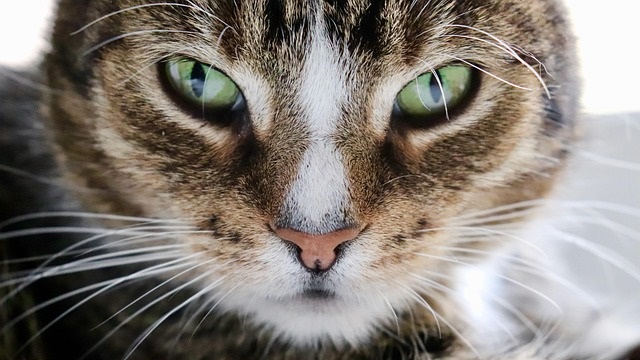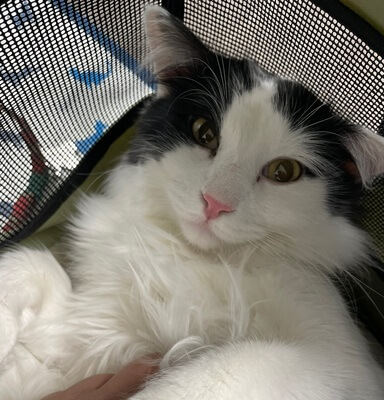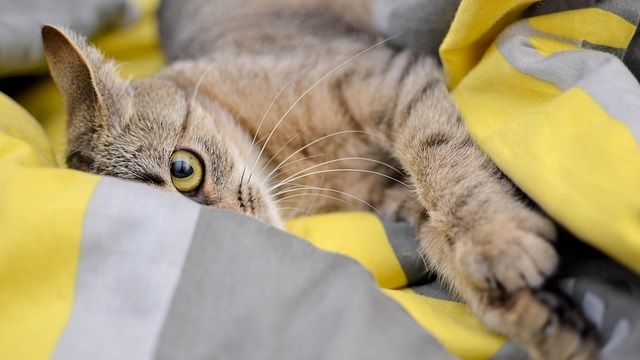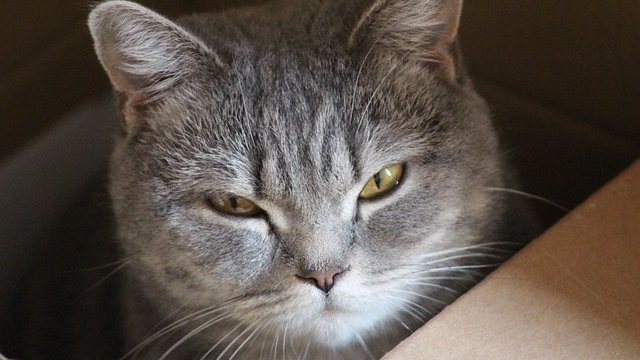Why Is My Cat Laying in the Litter Box? What It Could Mean
You go check your cat and they, a creature of habit and precision, are curled up in their litter box, not to use it, but to rest. Has this happened to you? Well, this strange behavior can be confusing and raise red flags. So, if you’re wondering “why is my cat laying in the litter box?”, the answer isn’t always simple. Understanding the potential reasons is the first step towards fixing the issue.
In this article, we’re going to discuss what your cat laying in the litter box might mean, when to take them to the vet, and how a pet tracker can be a game-changer to identify health issues.
Key Takeaways
- It’s a Signal: A cat lying in the litter box is an unusual behavior that almost always signals something is wrong, whether it’s a medical issue or a behavioral one.
- Urinary Blockage Alert: For male cats, this behavior is a potential sign of a life-threatening urinary blockage. This is a medical emergency.
- Medical vs. Behavioral: Reasons range from serious medical issues like urinary tract infections (UTIs) and kidney disease to behavioral issues like stress, anxiety, or seeking comfort.
Track the Changes: Using a pet monitor like the Maven Pet Health Tracker can help you track changes in your cat’s rest, activity, and behavior, providing crucial data to share with your vet.
Why Is My Male Cat Laying in the Litter Box?

“Why is my male cat laying in the litter box?” has a high-stakes answer.
In male cats, this behavior is a major red flag for a urinary blockage, also known as feline lower urinary tract disease (FLUTD). Male cats have a narrower urethra, making them highly susceptible to blockages from urinary crystals or stones.
A urinary blockage is a very serious problem, so if you have a male cat exhibiting this behavior, go to the vet immediately. They are likely in significant pain and unable to urinate, which can lead to kidney failure and death within two days.
“Every time Umi is hospitalized, it’s for like four days and it costs over $5,000… Maven has helped me not only save money but also save his life”

★★★★★
Jessica Ortiz
Umi
Behavioral Reasons Cats Lay in the Litter Box
Not every case is an emergency. Sometimes, a cat laying in the litter box is a sign of a behavioral or environmental issue.
- Stress and Anxiety: Cats are creatures of routine, and changes to their environment can cause significant stress. A new pet, a move, or even new furniture can trigger anxiety. Cats may retreat to a safe, familiar, and scent-marked area—like their litter box—to cope.
- Seeking Comfort and Security: A cat may use the litter box as a den or a safe haven from household noise or other pets. This is especially true for cats in multi-cat households or those who feel threatened by other pets.
- Territorial Behavior: In multi-cat homes, a more dominant cat may lie in the litter box to guard it and assert their territory, preventing other cats from using it. This is a sign that there may not be enough resources (litter boxes, food bowls, etc.) for all the cats in the house.
Medical Reasons Why Cats Lay in the Litter Box

These are the ones you must really be careful with. The litter box is directly tied to the urinary system, so any issues with that often manifest there.
- Urinary Tract Issues: Conditions like feline idiopathic cystitis (FIC) and urinary tract infections (UTIs) can cause significant pain and discomfort when urinating. Your cat may be trying to pass urine but is unable to.
- Kidney Disease: Cats with chronic kidney disease may experience discomfort and a frequent urge to urinate. Lying in the litter box could be an attempt to manage the constant feeling of needing to go.
- Mobility Issues: For older cats or those with arthritis, climbing into and out of a standard litter box may be painful. They may choose to rest in the box to avoid the painful effort of getting back in.
- Feeling Unwell: A cat who is feeling generally sick or lethargic may choose to lie in the litter box as a secluded, private space to be alone.
Red Flags That Require Urgent Vet Attention
“Lying in the litter box is often a cat’s way of signaling that something isn’t right — especially in males, where urinary blockages can become life-threatening very quickly.” – Dr. Joana Babo, DVM at Maven Pet.
While a single instance of this behavior can be stressful, certain symptoms signal a medical emergency. If you see your cat laying in the litter box along with any of the following, call your vet immediately:
- Straining to urinate or producing only a few drops
- Crying or vocalizing when in the litter box
- Bloody urine
- Excessive licking of the genital area
- Restlessness, agitation, or a lack of energy
- Loss of appetite
- Vomiting
How the Maven Pet Health Monitor Helps Track Behavior and Activity Patterns
When you notice a change in your cat’s behavior, the timing can be crucial.
And this is where a cat health tracker makes a difference.


Monitor heart rate, respiratory rate, activity & rest, itch behavior.
The Maven Pet Health Monitor tracks your cat’s activity, rest, and sleep patterns. If your cat is in pain, their activity levels often drop, and their rest periods may become restless or change in duration.
This data, which is collected 24/7 and stored in Maven’s pet health app, can provide objective evidence of a change in your cat’s routine.
You can then bring this information to your vet, helping them make a faster and more accurate diagnosis.
Using a pet tracker allows you to address potential problems before they become life-threatening, and reduce your cat’s suffering.
Takeaways Recap
- A cat lying in the litter box is an unusual behavior that should always be considered a sign that something is wrong, whether medical or behavioral.
- For male cats, this behavior is a red flag for a life-threatening urinary blockage, requiring immediate vet care.
- Pay close attention to additional signs such as straining, crying, lethargy, or loss of appetite.
- A tool like the Maven Pet Health Monitor can provide valuable data on changes in your cat’s activity and rest, helping you identify problems and provide crucial information to your vet.
Maven Pet focuses on improving the quality of life of our pets with technology, using artificial intelligence (AI) to enable proactive pet care. By accurately collecting and monitoring pet data 24/7 and flagging any irregularities, Maven Pet empowers pet parents and veterinarians to stay ahead of potential health issues, ensuring the well-being and longevity of our beloved companions.




